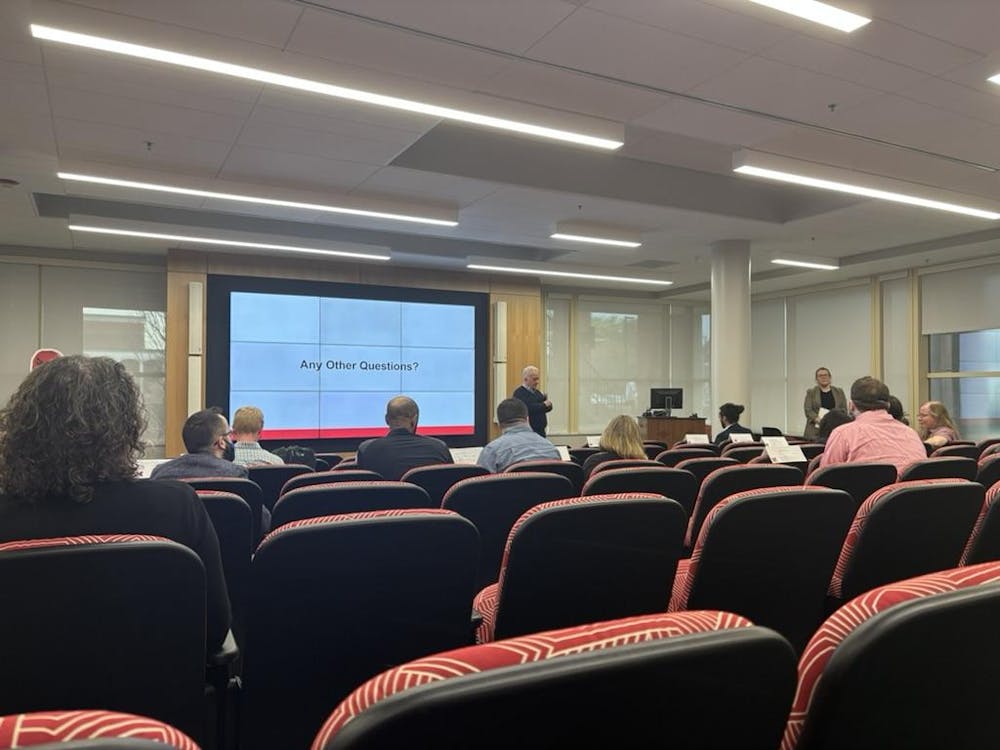The University Senate convened for its annual budget symposium. It covered the new zero-sum budget model, cuts to certain majors and workload requirements at the April 14 meeting.
David Creamer, senior vice president for finance and business services, presented on university finances. He introduced the new “zero-sum” budget system that Miami University hopes to implement, although he did not give a specific time frame for when the new budget system would go into effect.
Creamer emphasized the need for reform to the budget system as Miami experiences the same kind of pressures faced by universities all over the country, including declining enrollment, laws like Senate Bill 1 and changes within the Department of Education.
The new budget system will pivot from being focused on colleges in general to being more department-specific. Funding will go to majors and departments that show strong enrollment trends.
Some senators questioned the wisdom of relying only on enrollment numbers to decide where to spend funds. Several senators who teach in the College of Arts and Science (CAS) said these policies would likely harm humanities majors much more than their STEM counterparts.
“Your metrics here are entirely skewed towards STEM,” a senator in CAS said. “Every one of the things you listed are not things that are relevant to those of us in the humanities. This feels to me like an effort to eliminate the humanities.”
Enjoy what you're reading?
Signup for our newsletter
Creamer said he hesitated to say the university should make decisions solely based on budget policy, and other qualitative analyses should be used with hard data.
“It should be driven by judgements, knowledge, experience and other data,” Creamer said. “All the data is lagging data; it’s not always a forecast.”
One senator asked how double majors would factor into the calculations. The new budget guidelines direct funds towards students’ “primary majors.” Since many students, particularly students in the humanities, enroll as double majors, there is some concern that allocating funds based on the primary major designation won’t accurately reflect students’ studies.
Another senator also voiced concerns about the new arena district plans for Cook Field, saying, based on enrollment numbers, students will be paying about $621 per student per year to help build the arena, even with the predicted cost offsets from fundraising.
“If we build a new arena, it’ll cost $100 million more than it would to renovate Millett Hall,” the senator said. “If we’re able to make that up in donors, it will be the biggest fundraising we’ve ever managed to do by a long shot.”
Creamer said that if Miami cannot hit its fundraising goal, the cost for students will be closer to $14,000.
Senators also said they were still concerned about plans to implement the new workload system next semester, which was created in response to budgetary issues.
“I understand you need to stay aware of national trends, but if we only inform Miami’s future to follow what others are doing, we’re going to lose what makes it special,” one senator said.




